Emancipation Day commemorates the abolition of slavery and the liberation of enslaved people in different parts of the world. The date and significance of Emancipation Day vary by region, reflecting the unique histories and timelines of emancipation in each area. These celebrations honor freedom, resilience, and the enduring fight for equality.
Events
-
-
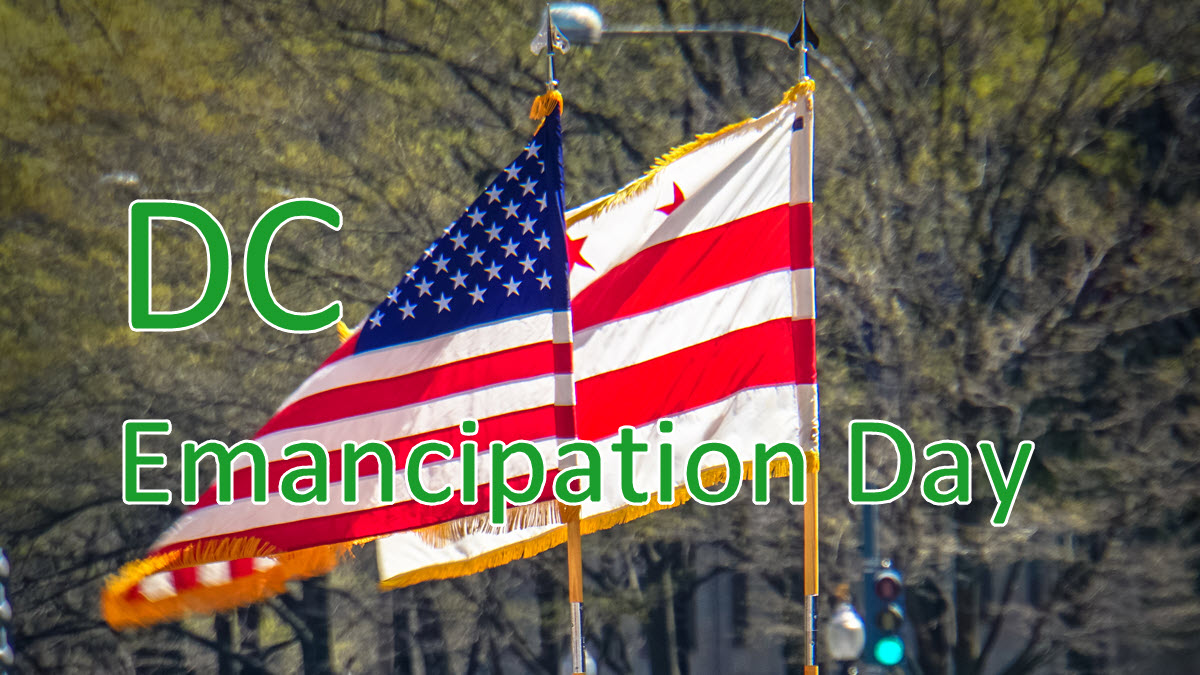
DC Emancipation Day
DC Emancipation Day commemorates the District of Columbia Compensated Emancipation Act of 1862, which ended slavery in Washington, D.C.
-
-
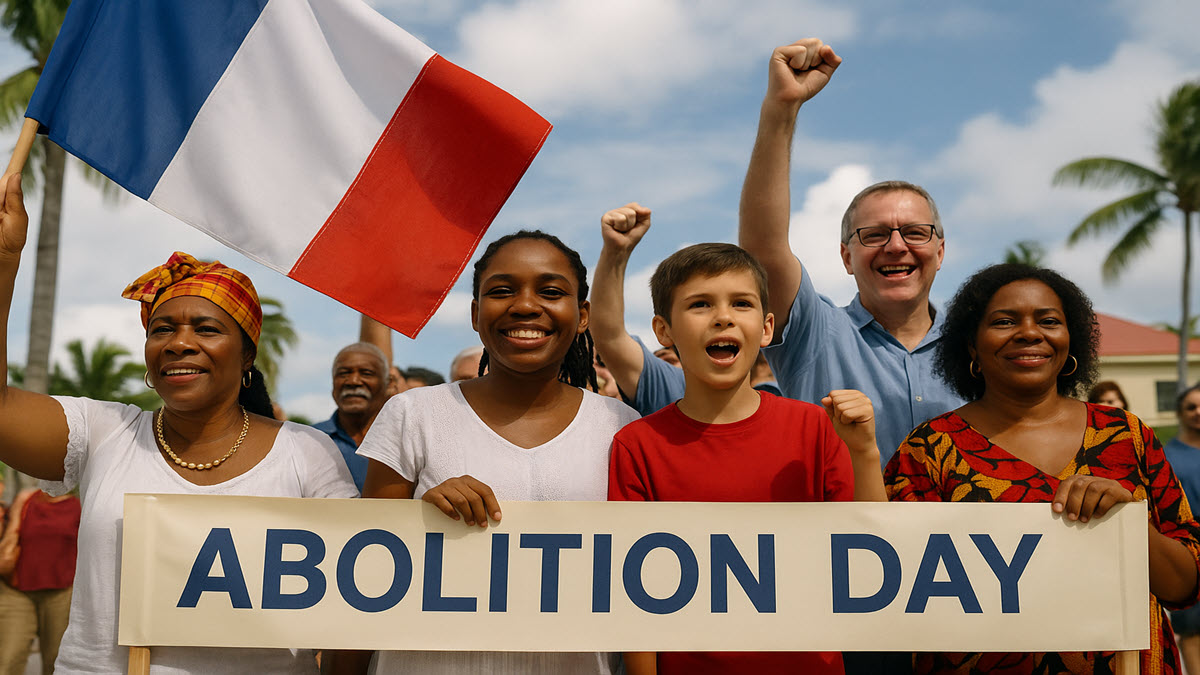
Abolition Day (Saint Martin)
Abolition Day in Saint Martin commemorates the 1848 abolition of slavery in the French Caribbean, honoring the struggles and resilience of enslaved people and celebrating freedom, heritage, and human dignity.
-
-

Emancipation Day in Tonga
Emancipation Day in Tonga is a deeply meaningful public holiday. It commemorates a monumental reform enacted in 1862 by King George Tupou I, who abolished serfdom and granted freedom and land rights to all commoners. It is one of the most historically significant dates in Tonga's journey toward becoming a sovereign, modern nation.
-
-
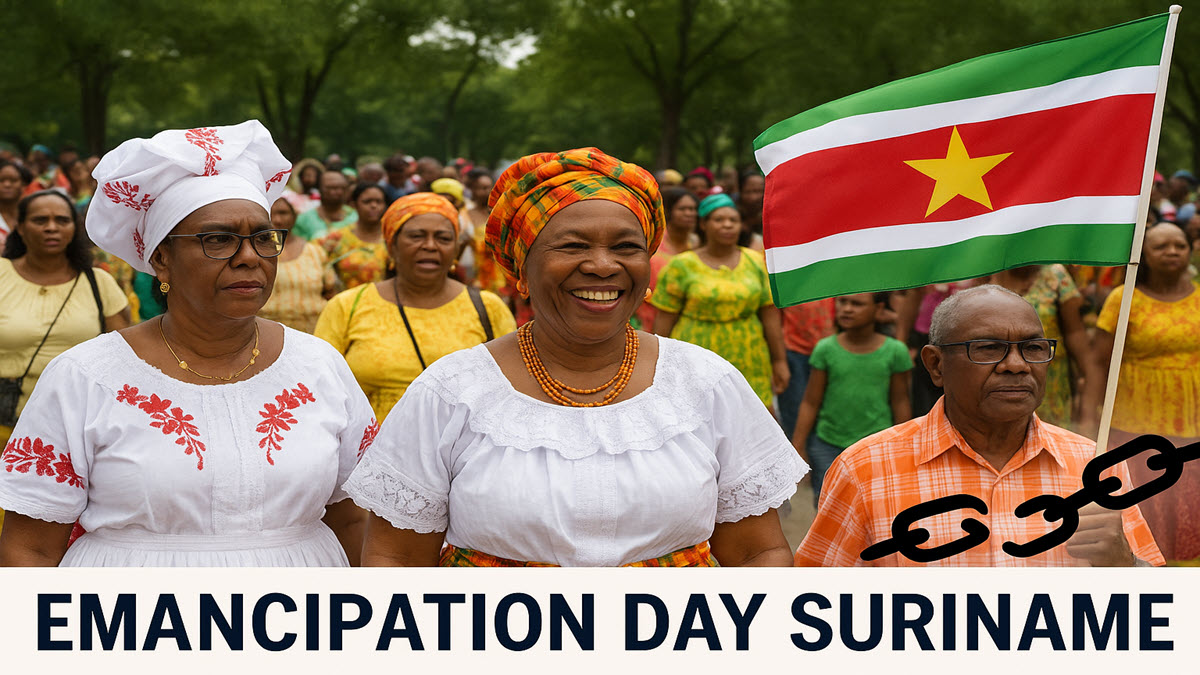
Emancipation Day Suriname
Emancipation Day in Suriname, known as Keti Koti, is to mark the abolition of slavery in 1863 (with full freedom realized in 1873). Celebrated with ceremonies, parades, music, and traditional dress, it is a national day of remembrance and cultural pride, symbolizing the breaking of chains and the enduring spirit of freedom.
-
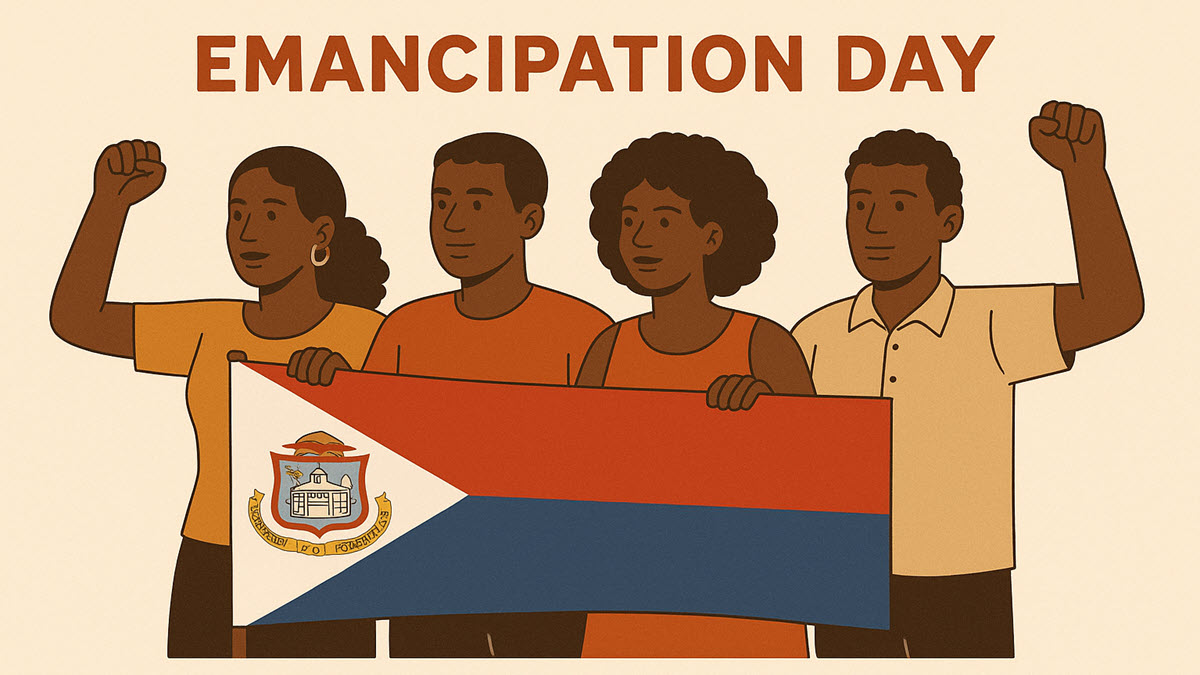
Emancipation Day (Sint Maarten)
Emancipation Day in Sint Maarten () commemorates the abolition of slavery in 1863, was officially declared a public holiday in 2012, and today serves as a day of remembrance, reflection, and celebration of cultural identity and freedom.
-
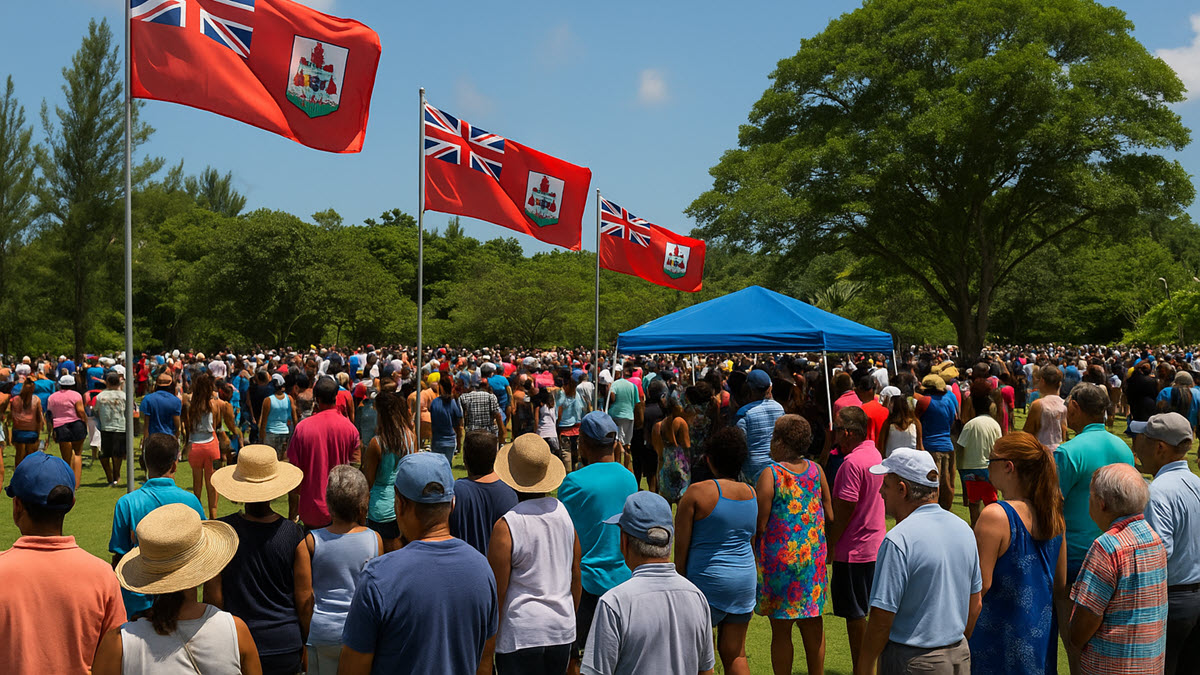
Emancipation Day (Bermuda)
Emancipation Day in Bermuda commemorates the abolition of slavery in the British Empire in 1834. The day honors the resilience, freedom and cultural heritage of Bermudians of African descent. It also marks the beginning of the island's beloved Cup Match holiday, a two-day celebration featuring the historic cricket rivalry between Somerset and St. George's clubs.
-
-
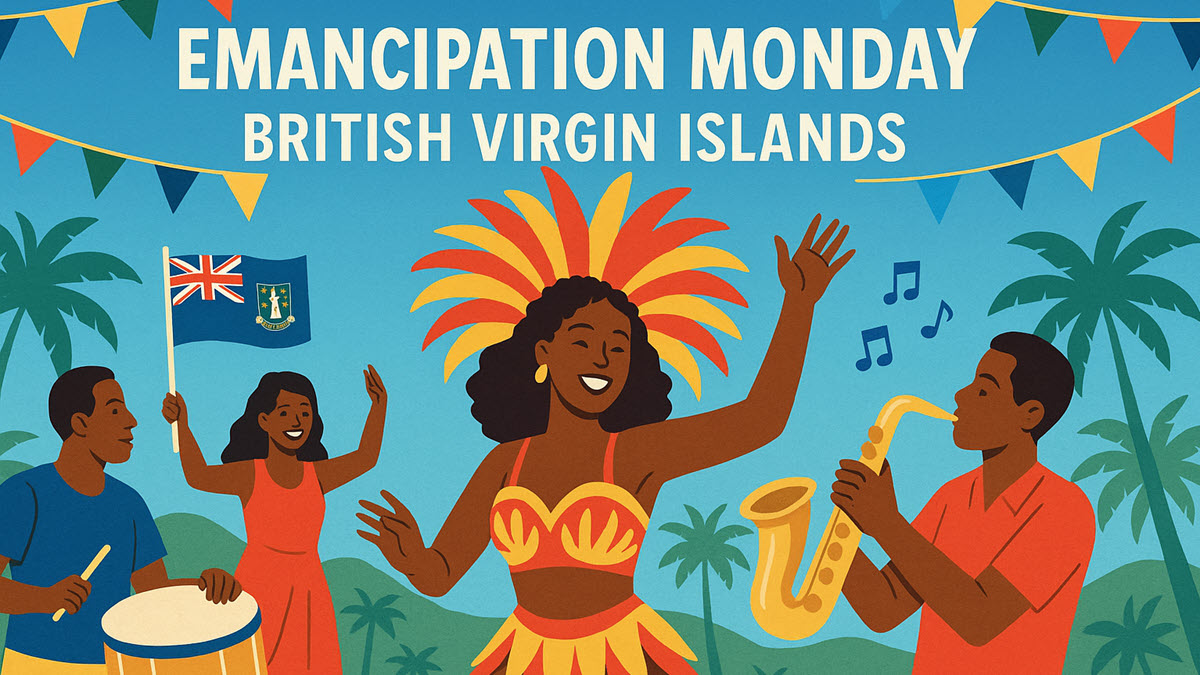
Emancipation Monday (BVI)
Emancipation Monday in British Virgin Islands honors the abolition of slavery on August 1, 1834, when enslaved Africans in the Virgin Islands and across the British Empire were granted freedom under the Slavery Abolition Act. The day is both a reminder of the struggles of the past and a celebration of freedom and resilience.
-

Carnival Monday (Antigua and Barbuda)
Carnival Monday in Antigua and Barbuda marks the vibrant opening of the island's Carnival celebrations. It follows the traditional J'ouvert morning festivities, when revelers take to the streets before dawn with music, dancing, and colorful paint and powder. The day celebrates freedom, creativity, and national pride, tracing its roots to the emancipation of enslaved Africans in 1834 and symbolizing the spirit of liberation and unity across the twin-island nation.
-
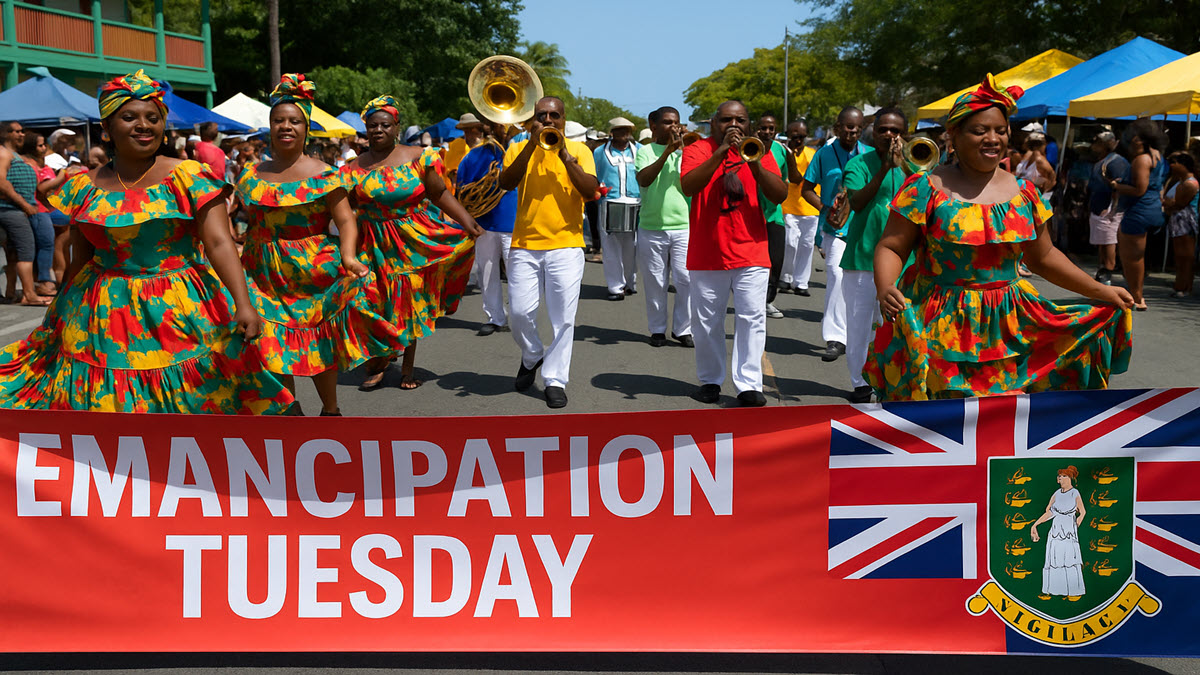
Emancipation Tuesday (BVI)
Emancipation Tuesday in British Virgin Islands extends the holiday beyond a single day, showing the depth of importance emancipation holds in the BVI's identity. It keeps alive both the joy of freedom and the cultural pride of Virgin Islanders.
-

Carnival Tuesday (Antigua and Barbuda)
Carnival Tuesday in Antigua and Barbuda is the dazzling climax of the island's Carnival celebrations. Revelers showcase elaborate designs competing for top band honors, while the atmosphere radiates color, pride and unity. The day marks the grand finale of the two-week Carnival season, a joyful tribute to freedom, creativity and Antiguan and Barbudan cultural heritage that began in the wake of emancipation.
-
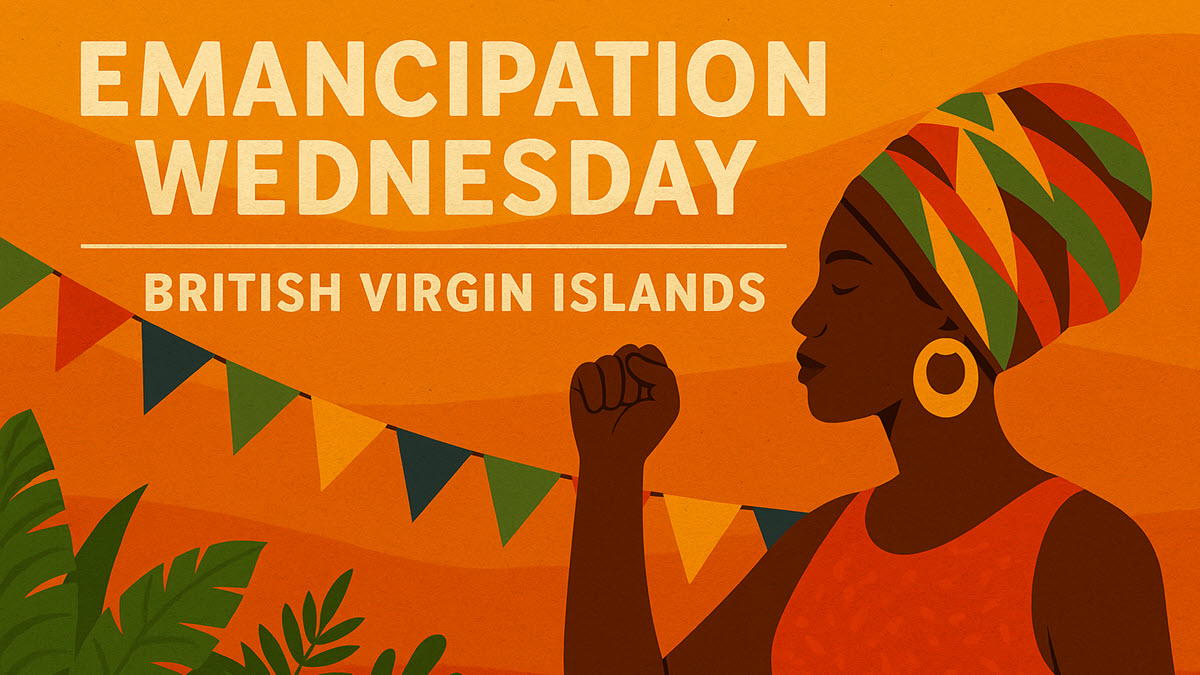
Emancipation Wednesday (BVI)
Emancipation Wednesday in the British Virgin Islands (BVI) is a public holiday, forming the third and final official holiday of the annual Emancipation Festival. It honors the abolition of slavery on August 1, 1834, when the Slavery Abolition Act of 1833 freed enslaved Africans across the British Empire, including the Virgin Islands.